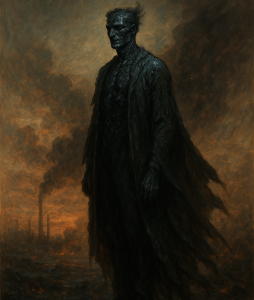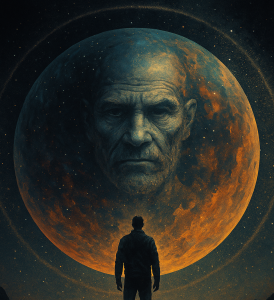The Philosophical Feathers of ‘Chicken People’: Reflections on Perfection, Passion, and Purpose
5 min readRecently, I watched a fascinating documentary called Chicken People, which aired about eight years ago. This film follows three individuals competing in a chicken breeding show in Ohio, tracking their journey over the course of a year as they breed, raise, and prepare their birds for the next competition. As I watched these dedicated breeders pour their hearts into such a niche pursuit, I found myself grappling with a set of questions that went beyond poultry and pageantry.
What drives a person to dedicate their lives to something as specific as breeding chickens for competition? What deeper human impulses are at play here? And most importantly, what can this tell us about the nature of perfection, passion, and the complex relationships we cultivate with the animals we shape?
These are no ordinary chickens. They’re raised, groomed, and bred to embody certain ideals—whether it’s the perfect sheen of a feather, the shape of a comb, or the symmetry of a chicken’s body. But for these breeders, it’s not just about the prize at the end. It’s about something deeper, something inherently human. Here’s where my philosophical reflection took flight.
1. Perfection and the Human Obsession
What does it mean to pursue perfection in something as seemingly niche as chicken breeding? Watching these breeders, I couldn’t help but wonder: is this quest for the perfect chicken really about the birds, or is it about our broader human desire to bring an ideal into reality?
The breeders in Chicken People strive to refine nature into something exceptional, which speaks to a broader theme: humanity’s obsession with perfection. In a world where chaos reigns, breeding offers a sense of control, an ability to shape life itself. It reminds me of the Platonic ideal—the notion that perfection exists in an abstract form, and all human effort is an attempt to capture it, whether in art, science, or, yes, even chickens.
But this quest for perfection doesn’t come without consequences. What happens when the search for the flawless chicken consumes someone’s life? Is there a tipping point where this pursuit moves from passion to obsession?
2. Harmonizing with Nature: Creation or Control?
As much as these breeders are driven by competition, there’s also a quiet reverence for nature at play. Watching them work, I realized that breeding isn’t just a mechanical process. It requires patience, intuition, and a delicate balance between guiding nature and being guided by it.
This brought me to another philosophical question: is this relationship with the chickens a form of harmonization with the natural world, or is it a form of domination?
In some ways, breeding for competition feels like humans stepping into a role of creator. These breeders aren’t just raising animals; they’re sculpting them, crafting living beings that reflect human ideals. Yet there’s a paradox here. Some breeders love their chickens as family, while others, when their birds don’t make the cut, may eat them. The conditional nature of this relationship reveals a tension between treating animals as companions and viewing them as tools for a specific end.
Is this balance between creation and control a reflection of human nature itself—our desire to guide the world, even as we’re shaped by it?
3. Legacy and the Pursuit of Immortality
One thing the documentary brought into sharp focus is the idea of legacy. The breeds these competitors preserve are not just animals; they’re living embodiment’s of history, genetics, and careful selection passed down through generations. Without these breeders, many chicken breeds would likely fade into obscurity.
This got me thinking about the broader human drive to create something that lasts beyond our own lifetimes. Whether it’s building monuments, writing books, or breeding the perfect chicken, there’s an inherent desire to leave something behind, to make a mark on the world. For these breeders, that mark is found in the feathers, shapes, and characteristics of the chickens they bring into the world.
Is breeding chickens for competition a way of achieving a form of immortality? The chickens they’ve bred may live on, but what they represent—the passion, dedication, and effort of the breeders—endures far longer.
4. The Ethics of Perfection
While it’s easy to get swept up in the romantic idea of raising the perfect chicken, Chicken People also prompted me to consider the ethical dimension of this pursuit. When we breed animals for specific traits, we’re exercising control over their lives in ways that raise moral questions. Is it ethical to shape a living creature for our own desires, even if those desires are for nothing more than a ribbon at the state fair?
There’s also a darker side to the pursuit of perfection. For some chickens, not making the cut means being discarded or eaten. Here, the unconditional love that we often associate with pets takes on a transactional tone. It’s a reminder that when animals become a means to an end, we have to reflect on the nature of our relationship with them.
Does the pursuit of perfection justify the control we exert? Are these chickens more than just the sum of their breed standards, or does our desire for control reduce them to mere instruments?
5. Passion or Obsession?
Ultimately, Chicken People left me wondering about the fine line between passion and obsession. For many of the breeders, this isn’t just a hobby—it’s a way of life, an all-consuming drive to create something extraordinary. Passion can give life meaning, but when it becomes all-encompassing, does it still enrich us? Or does it trap us in a never-ending cycle of striving for more, never fully satisfied?
Philosophers like Sartre and Camus might argue that we create our own meaning in life, and for these breeders, that meaning is found in their work. But existentialism also warns against becoming trapped in a self-imposed prison, where our passions take over and limit our freedom.
Watching Chicken People reminded me that passion is a double-edged sword—it can bring purpose, but it can also consume. And yet, without such dedication, many of the breeds we cherish today would likely disappear.
In the end, Chicken People is more than a documentary about chickens. It’s a window into the complexities of human nature—our desire for perfection, our love for creation, and the lengths we go to in pursuit of something meaningful. The breeders in the film may be shaping chickens, but in doing so, they reveal something timeless about what it means to be human.






